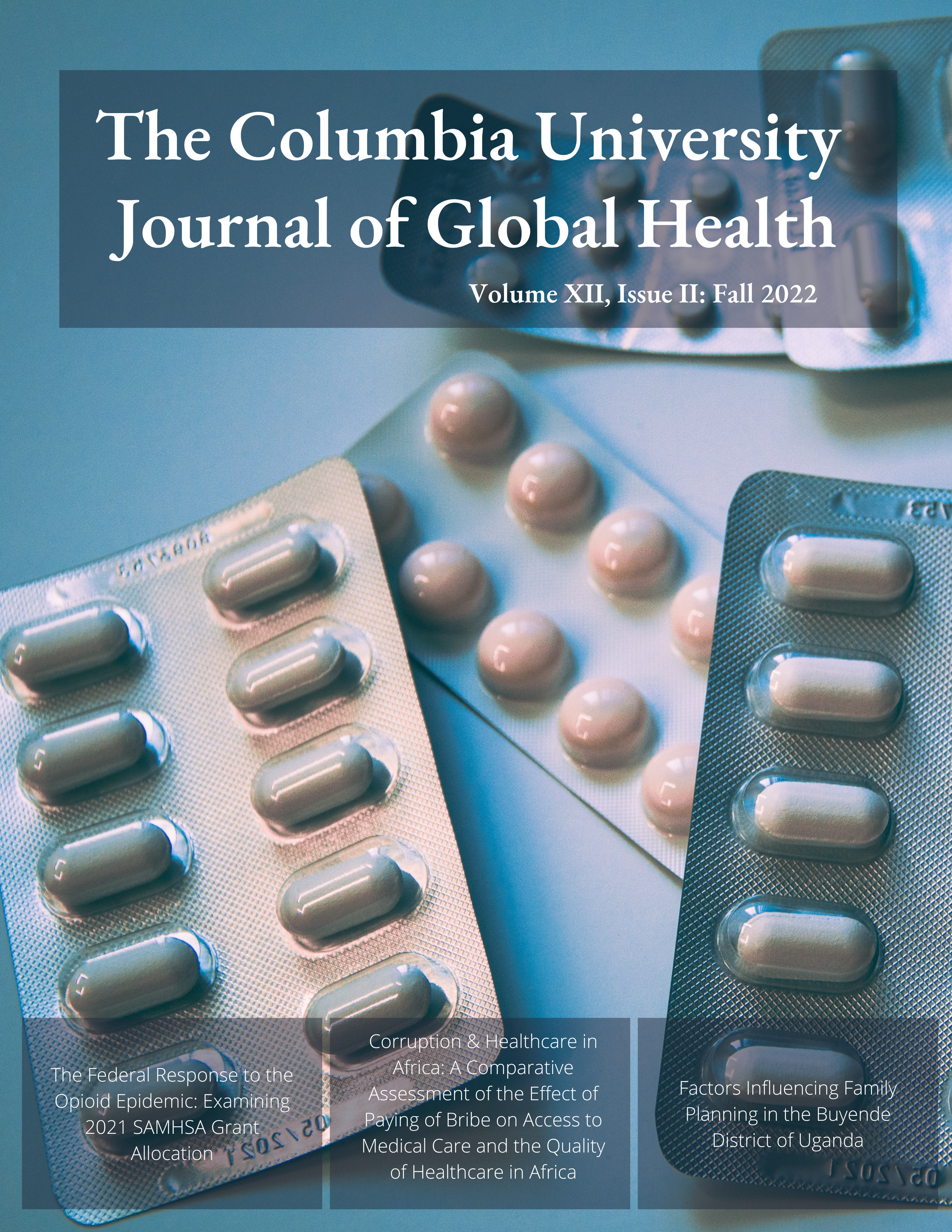Factors Influencing Family Planning in the Buyende District of Uganda
Main Article Content
Abstract
Introduction The goal of this study was to identify use of family planning (FP) in the Buyende district of Uganda, and what factors influence its use or lack of use. Methods Study participants included 60 women from 18 to 49 years old who lived in the Buyende District of Uganda. This was a mixed-methods study. Descriptive statistics and chi-squared analysis were performed on the survey data to identify factors associated with modern FP use. Qualitative analysis, consisting of an iterative coding process, was used to identify themes that arose in focus groups regarding barriers to FP use. Results Most participants were 20-24 years old (26.7%), married (86.7%), had a primary education (86.7%), and had a mean parity of 5.23 (range 0 to 14). One third of survey participants were currently using a form of modern contraception, and women who spoke to a healthcare provider in the last 12 months about FP were significantly more likely to be using a form of modern contraception (46.2% vs 10.5%, p=0.016). The most common barriers to FP use were side effects (71%), fear of husband disapproval (19.4%), and lack of access (16.1%). Qualitative analysis of focus groups demonstrated 9 major themes that emerged as barriers to FP: misinformation/misconceptions about FP; concerns about side effects; negative community perceptions of FP; lack of education; male opposition to FP; use of traditional methods; distance to health facilities; financial concerns; FP going against religious beliefs. Discussion It is important to continue to address not only the material access to FP and lack of education, but also the gender inequalities that are foundational to the lack of usage where desired.
Article Details

This work is licensed under a Creative Commons Attribution 4.0 International License.

